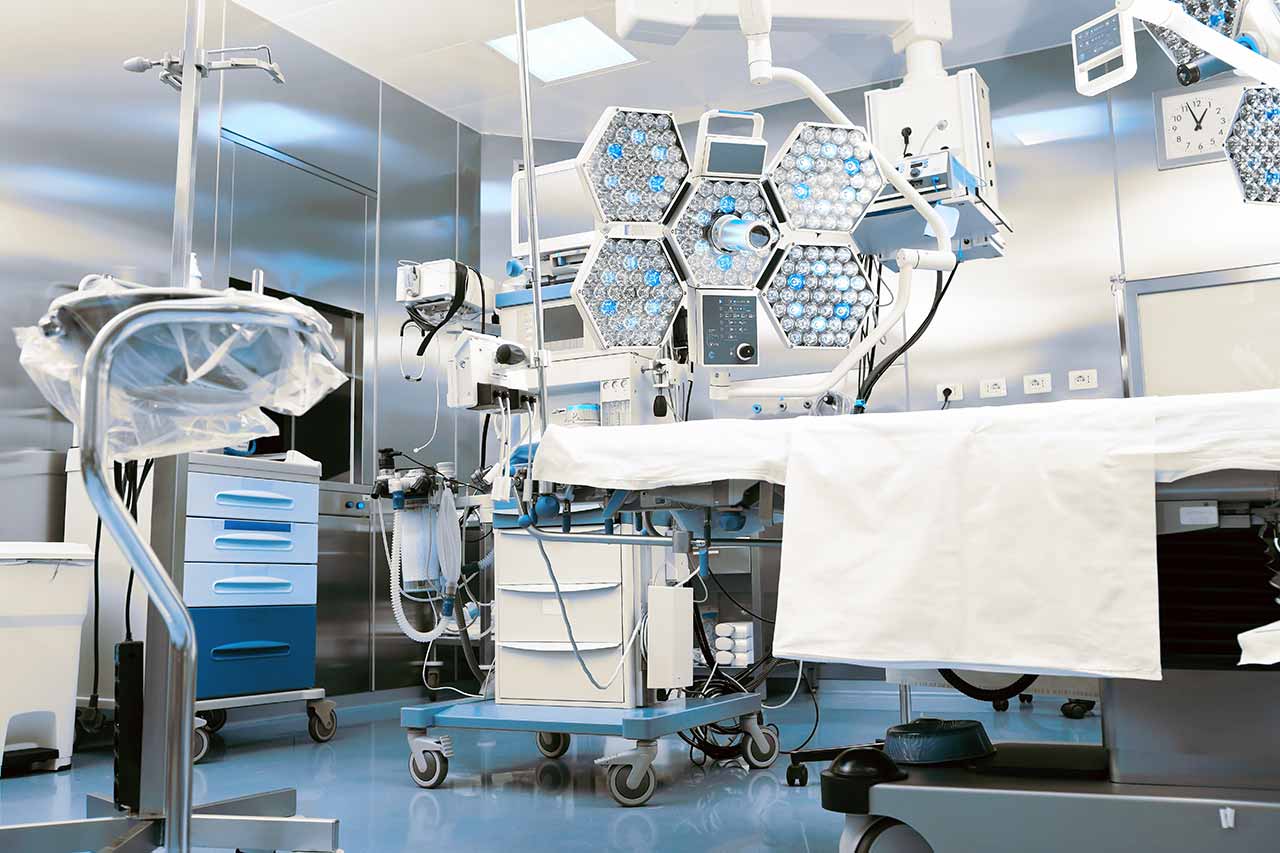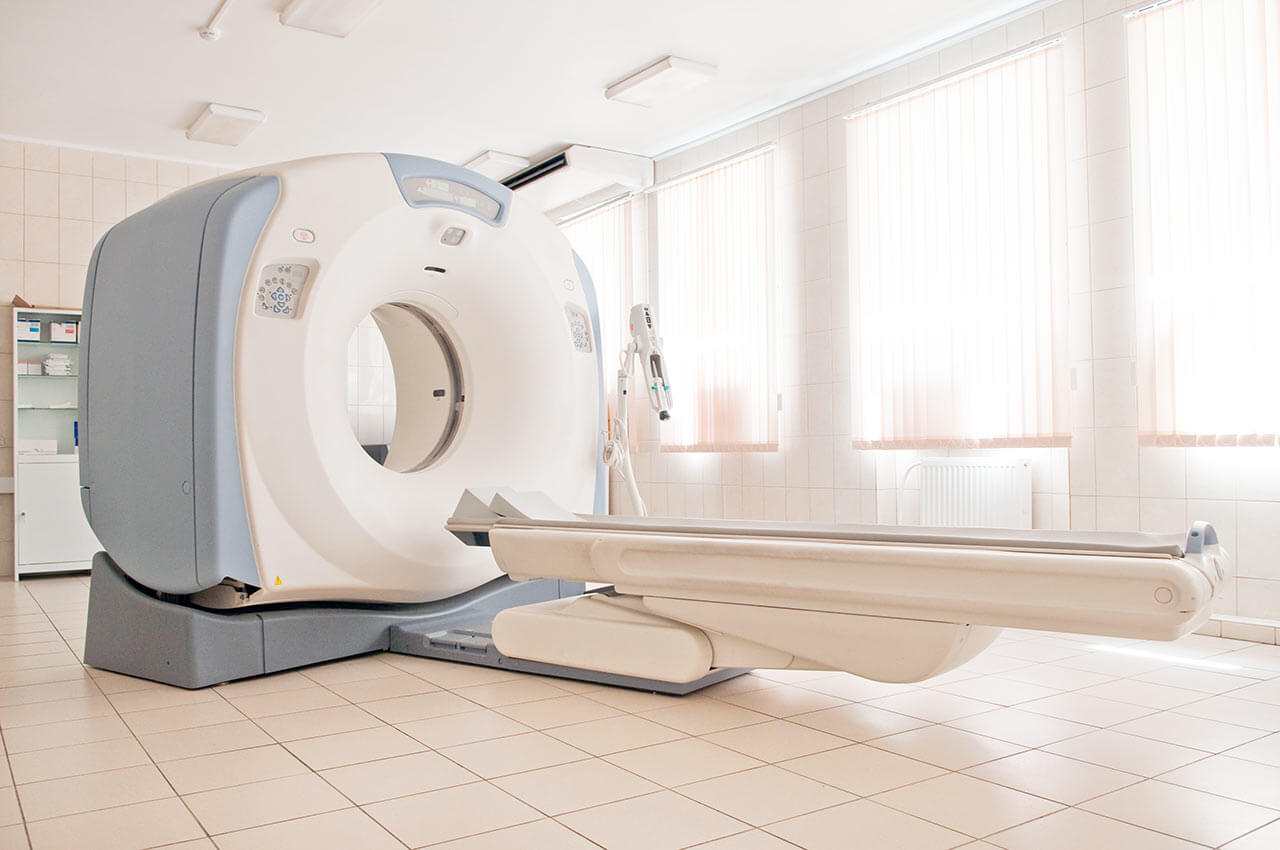
The program includes:
- Initial presentation in the clinic
- clinical history taking
- physical examination
- review of medical records
- laboratory tests:
- complete blood count
- general urine analysis
- biochemical analysis of blood
- indicators of inflammation
- indicators blood coagulation
- ultrasound of the urogenital system
- preoperative care
- surgery to remove a hydrocele
- symptomatic treatment
- control examinations
- cost of essential medicines and materials
- nursing services
- full hospital accommodation
- explanation of future recommendations
Required documents
- Medical records
- Scrotal ultrasound (if available)
Service
You may also book:
 BookingHealth Price from:
BookingHealth Price from:
About the department
According to the Focus magazine, the Department of Urologic Oncology at the Paracelsus Clinic Golzheim Duesseldorf ranks among the top medical facilities in Germany specializing in prostate cancer treatment!
The department provides the full range of top-class diagnostics and effective treatment of prostate, testicular, kidney, and bladder cancers. Treatment tactics are selected for each patient individually and, in most cases, combine surgical tumor removal with auxiliary conservative methods such as chemotherapy, radiation therapy, antibody therapy, immunotherapy, etc. Malignant tumors are most often resected with minimally invasive techniques or with the help of the innovative da Vinci surgical system. Robot-assisted surgery is characterized by minimal trauma rate, but, at the same time, its effectiveness is not inferior to classical surgery. In addition, the risk of developing erection problems is practically eliminated in robot-assisted interventions for prostate cancer, which makes it possible for a man to have a full sexual life. The main goals of the department's specialists are to provide their patients with interdisciplinary and comprehensive treatment, moral support, and a positive mood for a treatment outcome.
The department is headed by Prof. Dr. med. Joachim Hartlapp. The specialist has been successfully treating oncological diseases for decades, so his rich experience, deep knowledge, and close cooperation with outstanding specialists guarantee the optimal treatment result.
The department has state-of-the-art surgical equipment, and therefore, in most cases, surgical treatment is based on minimally invasive surgery. Nowadays, such operations are the gold standard in surgery, since they can be used to avoid large incisions in the abdominal wall. A surgeon makes only three to four small skin incisions, one to two centimeters in size, using a special camera and special miniature instruments. The camera allows doctors to increase the image of the surgical field up to 20 times. The image is displayed on the screen, so that the head surgeon and the entire team have a constant view of the surgical field. The department's range of services includes both conventional laparoscopy and retroperitoneoscopic and extraperitoneal laparoscopy. In addition, if clinically indicated, surgeons can also perform single-port laparoscopy, which requires only one two-centimeter incision at the umbilicus.
The department also has an innovative da Vinci surgical system. The operations with this system guarantee excellent results and have several advantages over conventional surgery, including small skin incisions that ensure minimal blood loss and the fastest recovery after surgery. In addition, the risk of developing erectile dysfunction and urination disorders during robot-assisted surgery is negligible. The robot-assisted surgeon is equipped with four slave manipulators, on which special miniature instruments are fixed. During the operation, a surgeon sits at the console and gives commands to the robot while controlling each surgical manipulation. A miniature camera is brought to the surgical field, transmitting images in multiple zooms, which contributes to the highest accuracy of the operation.
The department's medical team has unique qualifications in treating bladder cancer. Doctors believe that early tumor detection gives a high chance of a full recovery. Therefore, one of the innovative methods for diagnosing bladder tumors is available here, which makes it possible to detect even the smallest tumors and pathological changes in the bladder mucosa at an early stage. This method is called narrow-band imaging. In addition, the department widely uses photodynamic diagnostics, an examination with contrast enhancement that allows the specialists to clearly see malignant tissue lesions. When using photodynamic diagnostics, full electrical ablation of bladder tumors is possible, which significantly reduces the risk of a recurrence. In many cases, the department's specialists manage to remove the tumor using transurethral resection. In the advanced stages of oncology, a radical cystectomy is often performed, which involves the removal of the entire bladder along with the surrounding lymph nodes and other nearby anatomical structures. Whenever required, the required measures are taken to divert urine. An operation alone is not enough to completely cure cancer, so a treatment regimen may also include chemotherapy and/or radiation therapy.
One of the key focuses of the department's work is prostate cancer treatment, which is one of the most common male urologic pathologies. To confirm or exclude the diagnosis, a patient is prescribed various laboratory tests, among which an important role is played by the PSA test, imaging examinations (CT, MRI, and PET/CT scans), a (needle and fusion) biopsy, and histological examinations. With comprehensive diagnostic data, doctors begin to develop a treatment regimen. The department's doctors have many modern and effective treatment methods, but one of the most innovative is high-intensity focused ultrasound (HIFU), in which the scalpel is replaced by high-energy focused ultrasound. The method is especially suitable for patients with early stages of the disease and those who, for some reasons, cannot undergo surgical treatment. When performing focal therapy, general anesthesia is not required. High-intensity focused ultrasound (HIFU) has proven to be highly effective and may soon become an excellent alternative to a radical prostatectomy. The specialists also often resort to a prostatectomy with the innovative da Vinci surgical system. Prostate cancer surgery is usually supplemented with chemotherapy and/or hormone therapy.
The specialists at the medical facility effectively treat kidney cancer. At the diagnostic stage, a patient undergoes laboratory tests, ultrasound scans, computed tomography or magnetic resonance imaging, biopsy, etc. The mainstay of treatment is usually the removal of a neoplasm with a fragment of the kidney, and, in the advanced stages of cancer, the removal of the affected kidney is often required. The department's specialists perform operations using a minimally invasive method. It is also possible to perform robot-assisted surgical interventions in appropriate indications. Surgery is complemented by such conservative methods as chemotherapy, immunotherapy, or radiation therapy.
The department's main clinical activities are as follows:
- Diagnostics and treatment of bladder cancer
- Conservative treatment
- Chemotherapy
- Radiation therapy
- Immunotherapy
- Surgical treatment
- Transurethral resection of the bladder
- Radical cystectomy
- Surgery with the da Vinci surgical system
- Operations to form an artificial bladder (from the segments of the small intestine and ileum)
- Conservative treatment
- Diagnostics and treatment of prostate cancer
- Conservative treatment
- High-intensity focused ultrasound (HIFU)
- Hormone therapy
- Chemotherapy
- Immunotherapy
- Radiation therapy
- Surgical treatment
- Open surgery (very rare)
- Laparoscopic interventions
- Surgery with the da Vinci surgical system
- Watchful waiting for asymptomatic older patients (an accurate monitoring of pathology to prevent its progression)
- Conservative treatment
- Diagnostics and treatment of kidney cancer
- Conservative therapy
- Chemotherapy
- Immunotherapy
- Radiation therapy
- Surgical treatment
- Radical nephrectomy (kidney removal surgery)
- Partial kidney resection and organ-preserving kidney surgery
- Nephroureterectomy
- Surgery with the da Vinci surgical system
- Conservative therapy
- Other medical services
Curriculum vitae
Prof. Dr. med. Joachim Hartlapp heads the Department of Urologic Oncology at the Paracelsus Clinic Golzheim Duesseldorf. The specialist received his medical education at the Universities of Bonn and Essen. Prior to receiving his board certification in oncology, the doctor worked at the Bundeswehr Hospital and the hospital in St. Gallen. Prof. Joachim Hartlapp was a Senior Physician and a Head of the Department of Oncology at the University Hospital Bonn. It was his work at the university hospital that allowed him to gain invaluable clinical experience and gain an excellent reputation in professional circles. In 1986, Dr. Hartlapp had his habilitation procedure, and in 1991 he received his professorship.
Photo of the doctor: (c) Paracelsus-Klinik Golzheim Düsseldorf
About hospital
The Paracelsus Clinic Golzheim Duesseldorf is an advanced medical facility, whose scope of tasks includes the diagnostics and treatment of all urologic diseases. The clinic has exceptional competence in treating bladder cancer and holds a leading position in this field in the national medical arena. The specialists of the medical facility also demonstrate excellent results in prostate cancer treatment. With 120 inpatient beds, the clinic is one of the largest specialized urology clinics in Germany and Europe. The successful clinical practice of the medical facility is based on top-class service, the high professionalism of doctors, modern technical equipment, and long experience.
The clinic's team of doctors offers innovative diagnostic and treatment methods for diseases of the kidneys, adrenal glands, ureters, bladder, urethra, prostate gland, and reproductive system in men of all age groups, including children. The competence also includes the treatment of urinary incontinence in men and women. Each patient is provided with personalized treatment with the use of the most modern and sparing methods.
More than 2,500 resection interventions and about 4,500 transurethral endoscopic and percutaneous procedures are performed in the clinic's three modern multifunctional operating rooms annually. The clinic's surgeons have state-of-the-art instruments, including all devices for microsurgical procedures and laser surgery. In addition, the medical facility is equipped with an advanced da Vinci surgical system, which performs highly efficient operations on the prostate gland, kidneys, and bladder. The clinic annually admits more than 4,000 inpatients and about 7,000 outpatients. The clinic also provides treatment to international patients.
In June 2003, the clinic became the first in Duesseldorf to be fully certified in accordance with the DIN EN ISO 9001 standards. The clinic has a strict quality control system, which is the key to high-quality medical care. Patients can expect the best treatment results even in the most complex clinical cases, which many other medical centers are not ready to take on.
Photo: (с) depositphotos
Accommodation in hospital
Patients rooms
The patients of the Paracelsus Clinic Golzheim Duesseldorf live in comfortable single, double, and triple rooms with a modern design. Each patient room has an ensuite bathroom with a shower and a toilet. Standard patient rooms include an automatically adjustable bed, a bedside table, a wardrobe, a radio, a telephone, and a TV. Young patients live in specially equipped children's rooms with the possibility of accomodating a child with one of the parents.
Meals and Menus
The patients of the clinic are offered varied and tasty meals. In addition to breakfast and dinner, a patient has an opportunity to choose one of three dining menus, including a soup and a dessert. Cakes and/or fruits are also offered to patients as additional meals. In the case of food intolerance or special indications, a patient will be provided with an appropriate individual menu.
There is a cozy cafe on the territory of the clinic, from which one can see a beautiful view of the garden and an open terrace. Both patients of the clinic and their visitors can have a snack. The cafe offers a wide selection of main dishes, snacks, cakes and drinks.
Further details
Standard rooms include:
Religion
Religious services are available upon request.
Accompanying person
Your accompanying person may stay with you in your patient room or at the hotel of your choice during the inpatient program.
Hotel
You may stay at the hotel of your choice during the outpatient program. Our managers will support you for selecting the best option.




